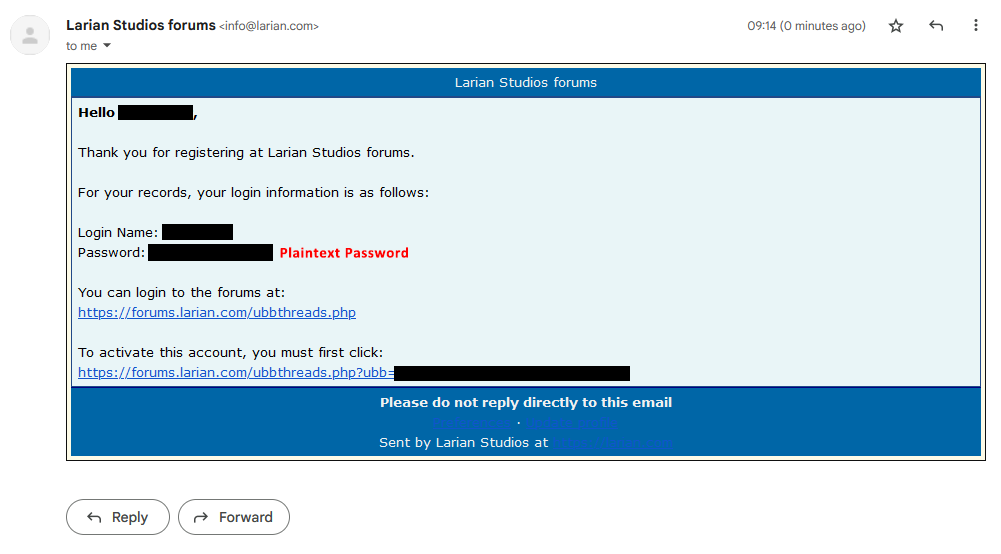this post was submitted on 28 Sep 2023
322 points (75.6% liked)
Games
31990 readers
1 users here now

Welcome to the largest gaming community on Lemmy! Discussion for all kinds of games. Video games, tabletop games, card games etc.
Weekly Threads:
Rules:
-
Submissions have to be related to games
-
No bigotry or harassment, be civil
-
No excessive self-promotion
-
Stay on-topic; no memes, funny videos, giveaways, reposts, or low-effort posts
-
Mark Spoilers and NSFW
-
No linking to piracy
More information about the community rules can be found here.
founded 1 year ago
MODERATORS
you are viewing a single comment's thread
view the rest of the comments
view the rest of the comments

I'm not really sure how it opens up replay attacks, since it doesn't really change anything to the default auth. There are already sites that do this.
The only difference is that instead of sending an http request of
{ username = "MyUsername", Password = "MyPassword" }changes to{ username = "MyUsername", Password = HashOf("MyPassword") }- and the HashOf("MyPassword") effectively becomes your password. - So I don't know how that opens up a possibility for replay attack. There's not really any difference between replaying a ClearText auth request vs an pre-hashed auth request. - Because everything else server side stays the same(Not entirely auth related), but another approach of client side decryption is to handle decryption completely client site - meaning all your data is stored encrypted on the server, and the server sends you an encrypted container with your data that you decrypt client side. That's how Proton(Mail) works in a nutshell
Put simply, jt allows an attacker with a leaked database to use the hashed password as a password. In your original comment, it seemed like you were suggesting hashing only before transmission, on the client; but hashing both before and after would indeed patch that particular vulnerability. I don't know if there are potential problems with that strategy or not.
Here's potentially an opportunity for me to learn: how does such a service (like Proton Mail) perform this in a web browser without having access to the data necessary to decrypt all of the data it's sending? Since you can't count on a web browser to have the private key, do you send down an encrypted private key that can only be decrypted with the user's password? Is there some other way to do this that I'm not aware of?
Ok, that wasn't what I was suggesting, no. That would effectively make your password hash the password itself - and it would kinda be stored in PlainText on the server, if you skip the client auth and send that value to the server directly through the api or something
Yes, pretty much. I can't really find a good, detailed explanation from Proton how it exactly works, but LastPass uses the same zero-knowledge encryption approach - which they explained with some diagram here - with a good overview of the client/server separation of it's hashing.
Awesome. Thanks for the links and the info.